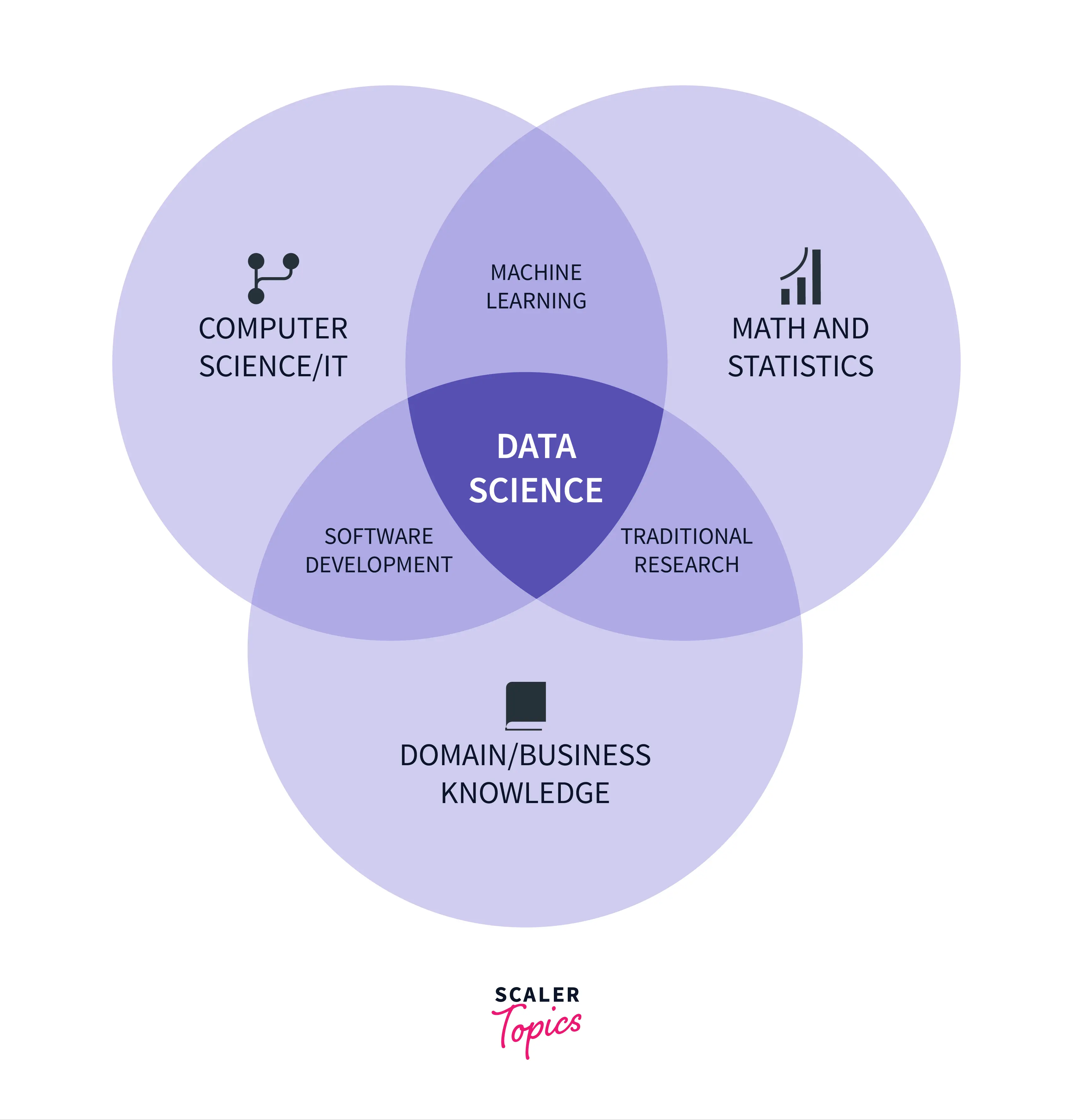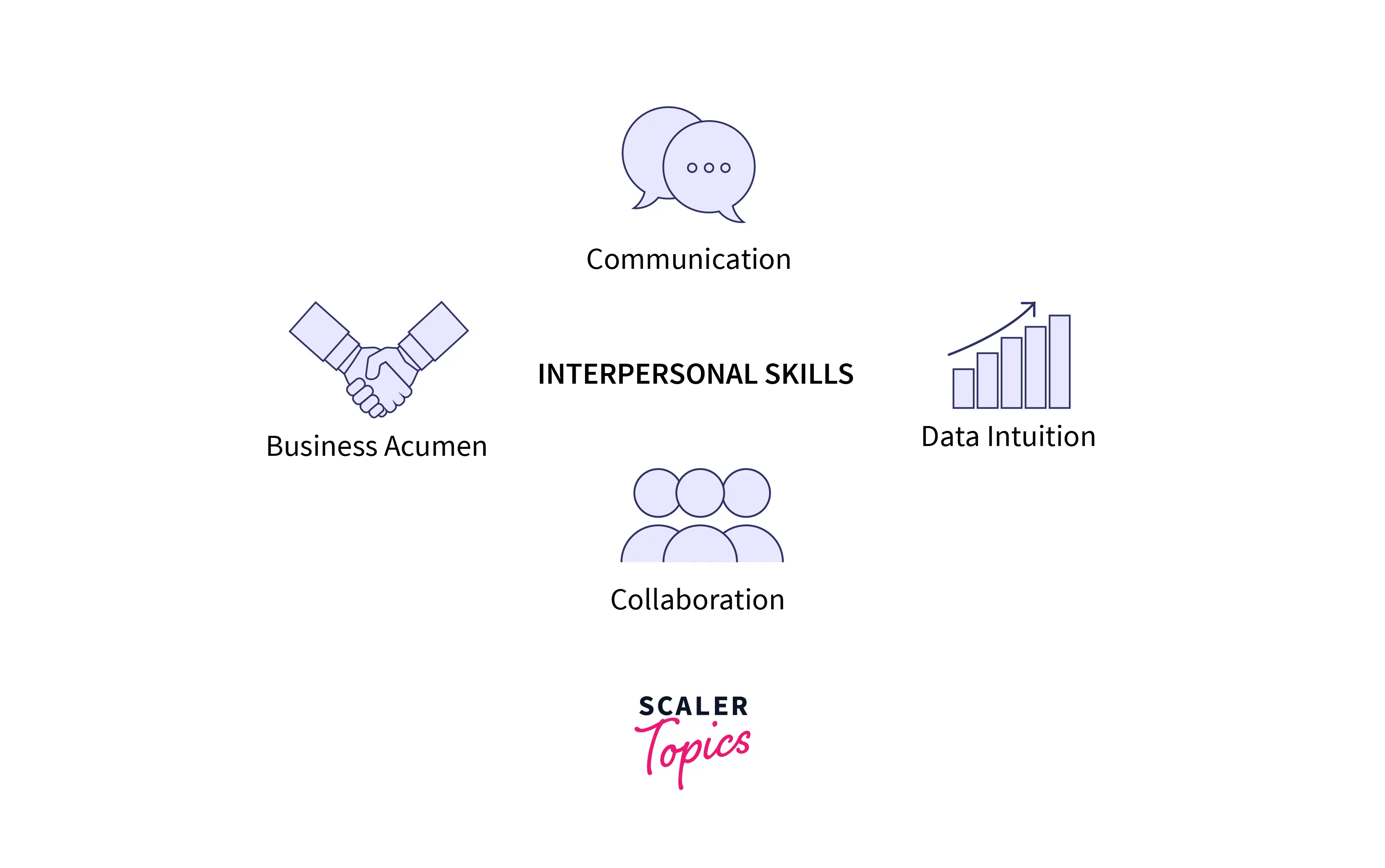Top 16 Data Scientist Skills Required in 2023

Introduction
Data Scientist: the person who is better at explaining the business implications of analytical results than any scientist, and better at the analytical science than any MBA.
-Dr. Jennifer Pristley, Professor of Statistics and Data Science
We are in a world driven by big data. Based on a report by Markets and Markets, it is estimated that Big Data Market size is projected to grow from USD 162.6 billion in 2021 to 273.4 USD billion in 2026, at a Compound Annual Growth Rate (CAGR) of 11.0%. This overwhelming amount of data will require specific domain experts who can process it and convert this data into actionable insights which can help organizations for better decision making. As processing the data becomes more intrinsically key to business success for any organization, implementing a coherent data strategy becomes paramount, and they are increasingly relying on data scientists to implement data science techniques to generate valuable insights to grow and become profitable. This has resulted in increased demand for data scientists across industries and the world, and this demand is set to grow for the next decade as well.
Data Scientist has already been regarded as the sexiest job of the 21st century by Harvard Business Review. And, for three years in a row, it is named the number 1 job in the US by Glassdoor. India alone has witnessed a 30% increase in Data Science jobs compared to last year. This presents a lucrative career path for students and experienced professionals who want to switch careers in data science.
In this article, we will talk about the Data Scientist Skills required to become a Data Scientist.
Educational Qualifications required to Become a Data Scientist
Data Scientists are generally advanced degree holders such as Masters or PHDs, but to become a Data Scientist, any degree is fine as long as you have an intuition for data and numbers and know how to solve business problems using it.
Though having an engineering degree in computer science discipline would have an advantage over other degrees as their education is a combination of mathematics and computer science concepts which are part of the core Data Scientist Skills required to become a Data Scientist but as long as you have the right set of Data Scientist Skills, it doesn’t matter which discipline your degree belongs to. Still, having a degree in the below disciplines can be considered the best choice to pursue a career in Data Science :
- Engineering
- Mathematicians or any degree in mathematics
- Statisticians or any degree in statistics
- Economist
- MBA
- Commerce Degree
If you are a student, you can consider pursuing an undergraduate degree in Data Science or closely related fields. It can help you understand mathematical and technical concepts to get a job in this field.
If you are an experienced professional looking to shift and position your career in Data Science, then you can consider pursuing a master's or advanced degree. There are also many online boot camps learning options available, and their durations can range from 3 to 9 months. Although boot camps can help you learn core Data Scientist Skills required to land a job in data science, still having an advanced degree is preferred by many organizations for data scientists jobs.
This interview guide will help candidates brush up on their skills to ace any Data Science Interview.
Top Data Scientist Skills
Apart from the educational qualifications mentioned above, the Data Scientist Skills can be classified into two categories -
- Technical skills
- Interpersonal skills (soft skills)
We will discuss these two categories in detail in subsequent sections.
Technical Skills Required to Become a Data Scientist
Below are certain technical skills which are required to be proficient if you are considering becoming a Data Scientist
- Statistics
- Machine Learning
- Deep Learning
- Data Extraction, Transformation, and Loading (ETL)
- Processing Large Datasets
- Data Visualization
- Data Wrangling
- Mathematics
- Programming Languages
- Statistics
- Statistics is one of the most important Data Scientist Skills, and its importance in Data Science cannot be underestimated.
- Statistics is a branch of mathematics that deals with the collection, analysis, interpretation, and presentation of data. It provides various tools and methods which can be used to process data, so Data Scientists can look for patterns and trends during Exploratory Data Analysis (EDA).
- The most common uses of statistics in Data Science are exploring the data using mean, mode, variance, and correlation, hypothesis testing, the statistical significance of features (p-value), etc.
- Machine Learning
- Machine Learning is a field in the Computer Science discipline which enables computers to learn the patterns in the data without being explicitly programmed. It is a must-have ability for any Data Scientist.
- Machine Learning techniques allow Data Scientists to build and develop predictive and prescriptive models which is the most important part of the job of a Data Scientist.
- Most common Machine Learning algorithms used in Data Science can be divided into supervised (Linear Regression, classification techniques such as Logistic Regression, Decision Trees, Random Forest, SVM, etc.) and unsupervised learning (Clustering, etc.). A good Data Scientist must have a sound understanding of the mathematical concepts of these algorithms. Also having familiarity with advanced machine learning techniques such as natural language processing, recommender systems, anomaly detection, etc. would help you stand out from the crowd.
- Deep Learning
- Deep Learning is an area of research in Machine Learning concerned with algorithms inspired by the structure and function of the brain called artificial neural networks.
- It has taken traditional machine learning to the next level. Deep learning has helped model complex functions and data which was not possible earlier with traditional machine learning approaches.
- The most common deep learning techniques used by Data Scientists are Artificial Neural Networks, Convolutional Neural Networks, Recurrent Neural Networks, etc.
- Data Extraction, Transformation, and Loading (ETL)
- Organizations store data in structured and unstructured formats in various databases such as MySQL, MongoDB, Data Lakes, etc. Data Scientists must be able to extract this data from all databases and transform it into such a format that is usable for further querying and analysis.
- Data Scientists are sometimes also required to extract data from websites or APIs. Knowing various data extraction techniques such as SQL, Web Scraping, etc. is a key skill required to become a Data Scientist.
- Processing Large Datasets
- Data Scientists frequently work with large amounts of data stored in disparate databases in the organizations. So they must be able to collect and process large datasets and apply advanced analytical techniques to derive insights.
- Data Visualization
- Visualization is the graphical representation of the data using visual elements such as charts, graphs, etc., which can help convey the information in a way that is understandable and pleasant to the eye.
- Once data is extracted and transformed into a format that is ready for further analysis, Exploratory Data Analysis (EDA) using various visualization methods is the next key step to identify various patterns in the data. Data Scientists should have a good understanding of basic plots such as histograms, bar charts, scatter plots, box plots, etc. which can help them in uncovering the patterns in the data.
- Using various visualization tools while communicating findings and recommendations to the management can help Data Scientists easily convey the information. Having familiarity with visualization tools such as PowerBI, Tableau, etc. will go a long way to advance in a data science career.
- Data Wrangling
- Often Data Scientists have to deal with messy or incomplete data. This data which is unusable at the beginning needs to be cleaned and transformed into a format that is usable and understandable.
- Data Wrangling is the process of collecting, cleaning, and transforming data into another format in which one can perform meaningful analysis of it. Data Wrangling is also known as Data Munging or Data Cleaning.
- Some examples of data wrangling include:
- Merging multiple data sources into a single dataset for further analysis.
- Removing data that is irrelevant to the analysis.
- Removing gaps in the data by handling NULL values and outliers.
- Mathematics
- Calculus, Linear Algebra, and Probability are the core concepts of any statistical or machine learning algorithm.
- Having strong knowledge of these mathematical concepts will help you in developing a sound understanding of any statistical or machine learning algorithm which is an essential skill required to become a Data Scientist.
- Programming Languages
- Data Scientists must have strong programming skills as they spend most of the time implementing their work using programming. Using a programming language, a Data Scientist can collect, explore the data, and model it by implementing various Machine Learning techniques.
- The most common programming languages used by Data Scientists are
- Python
- R
- Scala
- SAS
- Python and R are among the most widely used programming languages by Data Scientists because of the variety of libraries available to them. Pandas and Scikit Learn libraries in Python are the most used ones to prepare, clean data, and build machine learning models. These languages also provide great visualization libraries such as matplotlib, seaborn, ggplot, etc.
- Big Data Frameworks
- As currently data is being generated at a very high pace, and processing and dealing with large amounts of data has become a common part of a Data Scientist’s job.
- To deal with Big Data efficiently, a Data Scientist must be familiar with various Big Data processing frameworks such as Hadoop, Apache Spark, etc. Knowledge of these frameworks will help Data Scientists parallelize the implementation of data preparation and data modeling to avoid any memory-related issues.

Interpersonal Skills Required to Become a Data Scientist
In this section, we will shift our focus from technical Data Scientist skills and discuss various interpersonal/soft skills required to become a Data Scientist. Many data scientists focus on learning technical skills but spend little time developing the soft skills needed to become successful. In this section, we will talk about several key interpersonal skills required for Data Scientists -

-
Communication
- As a data scientist, you will be required to grasp business requirements or communicate your findings and recommendations to non-technical colleagues or stakeholders. This may include senior management, other departments within your company, or even customers. It is therefore essential to develop strong communication skills for a Data Scientist to be able to communicate effectively.
-
Business Acumen
- Business acumen is the ability to translate business problems into data solutions and connect to business impact. Having business acumen or knowledge would enable data scientists to understand how a business works and what problems it has to build appropriate data-driven solutions.
-
Storytelling
- Storytelling is the ability to effectively communicate insights from a dataset using narratives and visualizations.
- All work of a Data Scientist will be useless if businesses can’t act upon it. So storytelling skills are crucial for a Data Scientist to communicate the findings in the form of oral communication, writing, or using a visualization approach.
-
Collaboration
- Data Scientists often work with various teams and stakeholders in organizations. This may include data engineers, data architects, senior management, engineering, other departments, etc. Collaboration with all of these stakeholders is essential to understand their business requirements, communicate your requirements, or communicate findings and recommendations to them.
-
Learning
- Research in the Data Science field is evolving at a very fast pace and it is required to stay up to date with ongoing research to become a successful data scientist. Rather than aiming for perfection, you should focus on developing a discipline to learn and read about new things to stay tuned with ongoing research in this field.
- Some of the common ways to stay up to date with the ongoing research are reading through papers or blogs, attending conferences, etc.
-
Data Intuition
- This could be perhaps the most important skill required to become a successful data scientist. Generating valuable insights from the data is not a trivial task, and a Data Scientist must have intuition about where to look for the information in the data as most of the time, valuable insights would not be apparent. Having this soft skill will make Data Scientists very efficient in their work. If you think you don’t have a good intuition for the data, don’t worry, it can also be developed with experience and extensive hands-on practice with diverse data science projects.
Conclusion
The future of Data Science is quite promising across the world and industries. With the ever-growing data and business organizations investing more and more in improving their data infrastructure and fostering data science implementations, opportunities in data science seem to be ceaseless. Data Scientist has already been regarded as the sexiest job of the 21st century. And, for three years in a row, it is named the number 1 job in the US by Glassdoor. The work profile and data scientist salaries are highly attractive in India and across the world. In this article, we have talked about various Data Scientist Skills in detail. It is the right time to think you have the right skill sets and enthusiasm to embark on a career path to becoming a data scientist.
If you want to start a career in Data Science, check out Scaler’s Data Science program.
